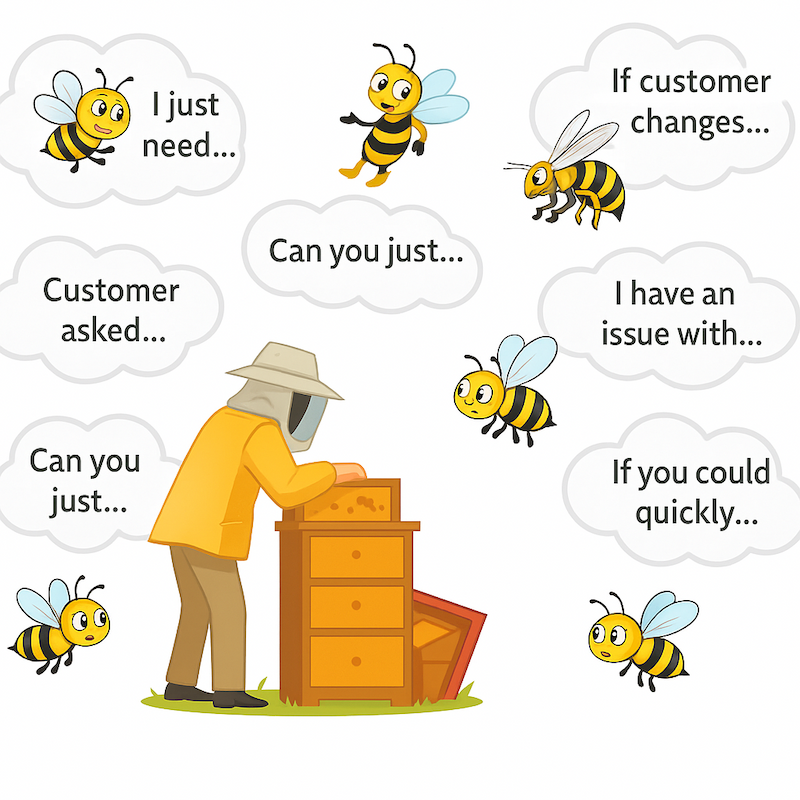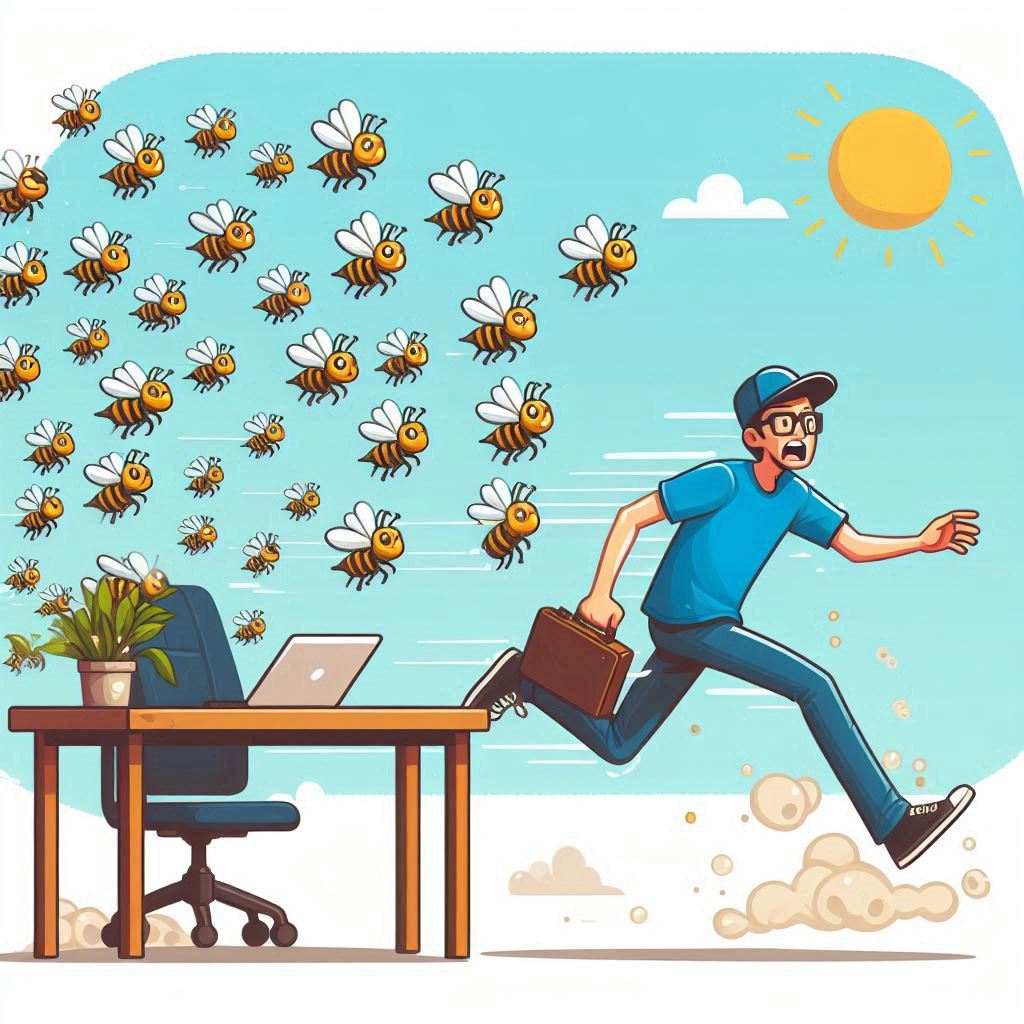What can a (software) leader learn from a beekeeper
Motivation
I took part in a team lead development program, presenting on aspects of leadership as applied in practice and their impact within my area of responsibility.
While being in a software engineering for a while as a professional, I have encountered many situations where I needed to share or receive technical knowledge - helping teammates with their daily challenges and architectural decisions, and, as a side effect, supporting their growth as leaders.
But one thing is growing together with your team, making mistakes and recovering and learning from those as a group, and another is to present such experience to people you might know or don’t know at all, those who were never your close associates.
There are several authors trying to define different leadership styles, for example Daniel Goleman has defined 6: coercive, authoritative, affiliative, democratic, pacesetting and coaching. 1 While trying to fit myself in one of those, and build presentation around it, I realized that I have a hobby which is already helping me in my profession. How has a beekeeper hobbyist-me helped engineer-me to prepare such presentation? And how it is helping me in my daily business?
Beekeeper to the rescue
This is not a story about Jason Statham’s 2024 movie The Beekeeper where he is ass-kicking some nasty developers. Sorry to disappoint. But that movie has happened 2-3 years after my presentation, and could not impact it, unfortunately. Our professional life has less action elements, unless your team is deploying Friday late afternoon.
Ouch… What shall I do?

In a highly agile environment - this term is sometimes just used for chaotic environment - a person leading a team is working on several tasks. We all have this, each day. However, a leading role is a bit specific, since it brings responsibility towards the team, as well as towards other interfaces - stakeholder communication, product discussions and decisions, architectural decisions, next hierarchical levels… Depending on your position there may be more or fewer such duties. These are happening mainly in parallel. Each person approaching you has a topic that is a highest priority for them. And you have your own topics, and yes, those are the most important to you.
One thing per a time
Advancing up the hierarchical ladder - especially when stepping into a leadership role for the first time - can bring a sense of frustration. You might feel your time is wasted answering stakeholders’ questions or simply participating in discussions. But this isn’t wasted time; it’s your new job, and learning how to navigate it is essential.

To collect that sweet potion, you need to:
- Stay calm
- Stay focused
- Be patient
- Prioritize
Checking the hive in the spring is a crucial step for a successful season. Each one needs to be checked carefully. Frame by frame. Is there enough free space in the brood comb, or is it filled with honey? Ensuring enough space helps prevent swarming and keeps the colony strong. But what if the colony is already weak? Sometimes, you need to shift from checking to acting, helping the colony regain strength. Is the queen present, and how easy is she to spot? Do you need to see her, or is it enough to find fresh eggs? Answering these questions is vital, and doing so in a sometimes hostile environment doesn’t make it any easier.
Stay focused. Remain on track. Or, be ready to recognize when a more important task emerges. Be patient; it’s rarely about speed. It’s about your ability to prioritize, again and again.
Let’s make it together
Bees cannot be domesticated. They are flying in direction where precious nectar can be collected. At the same time, younger are staying at home, doing housekeeping, baby-sitting, producing wax, guarding and scouting. Mother queen is trusting them to do their tasks, to secure enough food for the society. Beekeeper can only hope for more, but what they can do is to find a good spot for the hive. To not have them exhausted, but ready for the season, by leaving them enough food, or providing additional, to prevent spring swarming.
Leader needs to learn to delegate the tasks. Needs to learn to trust, sometimes even in the own expertise field. There is no need to micromanage, that rarely helps. Important is to have a team fit for the next challenge. To make clear what next needs to be done, to build a team with a good seniority balance, to prevent burnouts by making good planning, to nudge in the right direction, to compromise when needed. But execution of the task itself it is to be trusted to team mate. It is a team effort to deliver the result. There is no good leader without good team. Vice versa, yes, sometimes it could happen.
Sweet spot
And my personal take on the journey - the feeling of creating something complex that can be only achieved as a team?! It is worth every sting. That sweet taste stays for a long after, until the next time, until another piece of software and another jar of honey.
Daniel Goleman, Chapter 7 - Leadership that gets Results in Leadership Perspectives, edited by Alan Hooper ↩︎